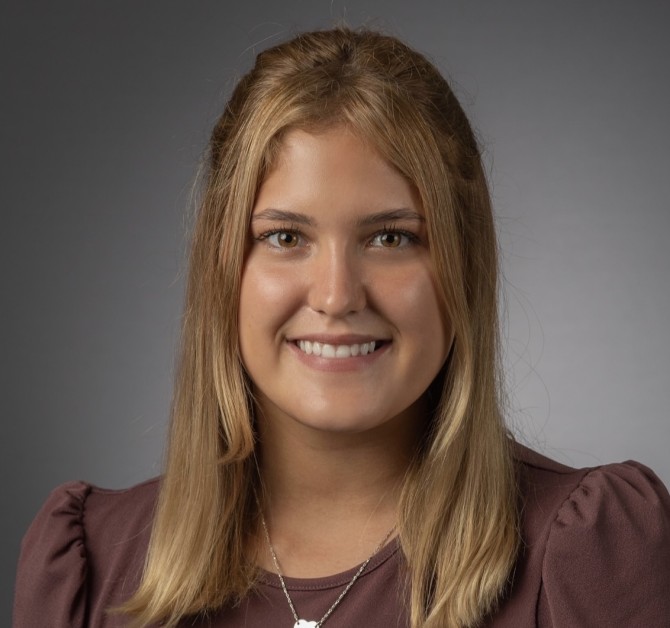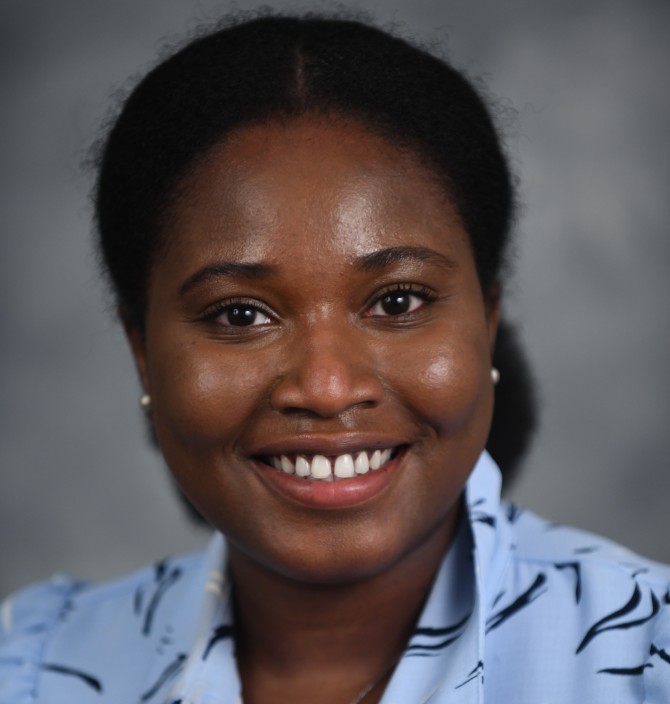News directly from Cornell's colleges and centers
‘Ezra’s Bridge’ to increase minority students in chemical, materials sciences
By Syl Kacapyr
The story of talented minority students struggling to advance in higher education is one that is all too familiar in STEM-related fields, and one that has inspired the launch of Ezra’s Bridge – a transitional M.S. program that addresses challenges faced by students underrepresented in chemical and materials sciences by providing them with a full-tuition scholarship, research opportunities, mentoring, and professional development.
Ezra’s Bridge was launched in August 2021 after Cornell was selected as an American Chemical Society Bridge Program site, with the greater goal of addressing the gap in doctoral students from racially and ethnically diverse backgrounds, particularly Black, Latinx, and Indigenous students.
While 30% of the U.S. population identifies as an underrepresented minority, only about 11% of chemistry doctoral degrees are handed out to students from those populations, according to the American Chemical Society. The gap undermines national efforts to produce scientific leaders and highlights the difficulties some students face in pursuing a graduate degree.
“Our aspiration is nothing short of graduating cohorts of students with a solid foundation, both scientifically and professionally” said Susan Daniel, the William C. Hooey Director of Chemical and Biomolecular Engineering at Cornell and co-leader of Ezra’s Bridge, “This program will springboard students into their Ph.D. armed with a scientific publication, experience in scientific presentation, a funded fellowship, and the self-awareness of knowing exactly what they want to pursue for a fulfilling and impactful career.”
Students accepted into the program as Bridge Fellows will be shepherded through laboratory research; skill-building in technical areas; professional development short-courses; and training in communication skills for the development of an M.S. thesis, graduate applications, and scientific presentations. Each Bridge Fellow will be guided toward becoming an independent researcher with the help of a mentoring committee consisting of two faculty members and a senior Ph.D. student.
The program embodies the spirit of Cornell’s namesake, Ezra Cornell, who declared he would found a university where “any person could find instruction in any study.” The university’s commitment to inclusion remains steadfast, according to Lara Estroff, program co-lead and director of the Department of Materials Science and Engineering, where chemistry plays an important role in research and education.
“As one example, we have achieved parity for women in the incoming engineering freshman classes every year since 2018,” Estroff said, “but there is still a lack of parity between U.S. populations of people of color and their enrollment in STEM majors. The disparity becomes greater in graduate school enrollment.”
Ezra’s Bridge will accept nine fellows over the next three years, with the goal of making all nine competitive for prestigious fellowships and placed in top doctoral programs.
The Ezra’s Bridge Executive Committee includes Daniel and Estroff, as well as Erica Dawson, professor of practice and the Nancy and Bob Selander Executive Director of the Engineering Leadership Program; Tobias Hanrath, professor of chemical and biomolecular engineering; Sara Hernandez, associate dean for inclusion and student engagement at the Graduate School; José Martínez, professor and senior associate dean for diversity and academic affairs at Cornell Engineering; Rich Robinson, associate professor of material science and engineering; Abraham Stroock, the Gordon L. Dibble ’50 Professor and leader of the National Science Foundation Research Traineeship Program at Cornell; and Jeff Varner, director of graduate studies in chemical and biomolecular engineering.
For more information, contact the Ezra’s Bridge program.
Cornell names first two Bridge Fellows
Giselle Roca, a Cuban-born chemical engineer, and Mavis Ofori-Brown, a biologist originally from Ghana, have been selected as the first two Bridge Fellows as part of the Ezra’s Bridge program.
While the program is designed to create mentorship for its fellows, Roca and Ofori-Brown said a motivating factor for pursuing their doctoral degrees is to become mentors themselves.
Roca earned a B.S. in chemical engineering from the University of Michigan and joins the graduate field of materials science and engineering to study applications of block co-polymer membranes as part of the Wiesner Group.
Roca came to the U.S. from Cuba as a young child, an experience she said helped her understand the importance of culture and language as a way of creating bonds among people. Her commitment to understanding other cultures and customs led her to pursue an International Minor for Engineers as an undergraduate student, and to develop intercultural communications skills through her coursework.
Roca was also a member of the Society of Hispanic Professional Engineers and of the Society of Women Engineers, which gave her the opportunity to promote professional excellence for women and an inclusive community for all.
“As I continue my journey in graduate school and later in my career, I want to continue to be part of similar experiences that enhance diversity in my life and in the lives of others,” Roca said.
Ofori-Brown earned a B.S. in biology from SUNY Stony Brook and joins the graduate field of chemical engineering to study computational chemistry and pharmacokinetics as part of the Varner Group.
As an undergraduate, she specialized in bioinformatics and discovered a passion for the application of chemistry to solve societal grand challenges. She is particularly interested in the optimization of drug delivery systems.
Ofori-Brown came to the U.S. after graduating high school in Ghana. Being the first in her family to attend college made it difficult to navigate her educational experience and she struggled to find mentorship. She said this experience drives her commitment to earn a doctoral degree and become a mentor for others, including younger relatives and youth in her community.
“Being able to achieve my Ph.D. will not only help me better advise and help other young people, but will also show them that it is possible to be a scientist,” Ofori-Brown said. “I believe in the possibilities of others to acheive their dreams, too, in the midst of adversity.”
Media Contact
Get Cornell news delivered right to your inbox.
Subscribe


